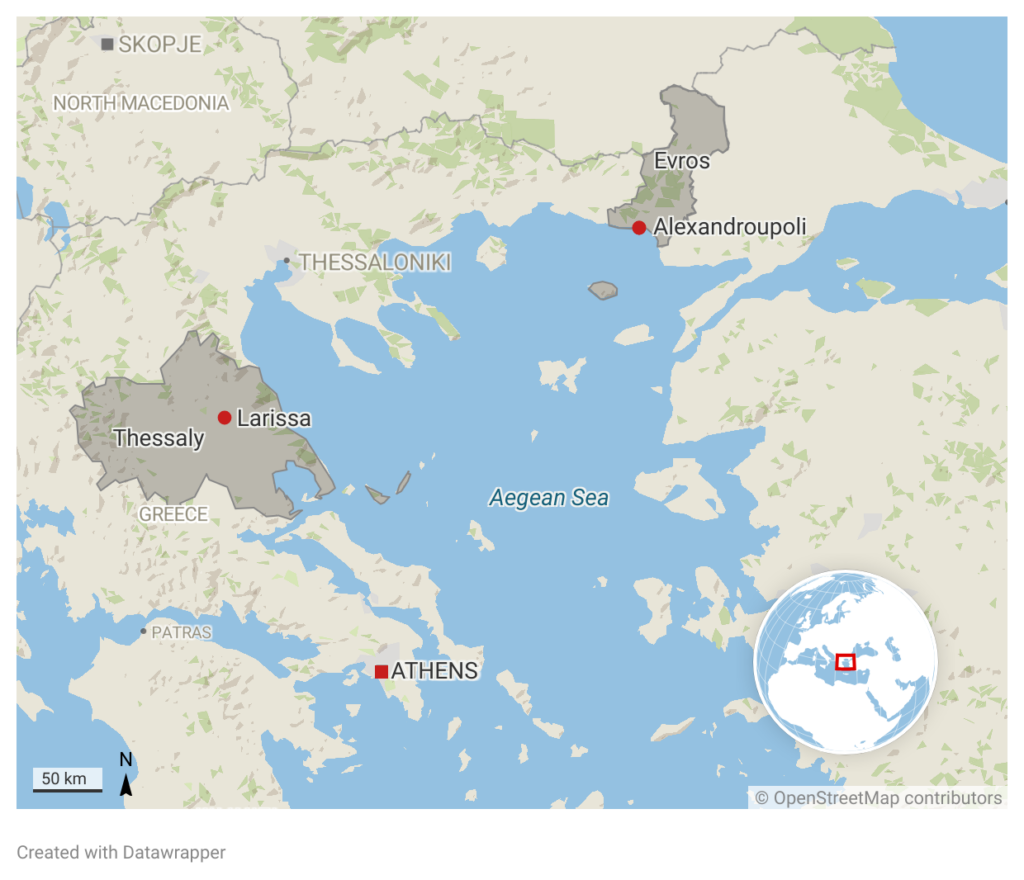[ad_1]
Two billion euros! This may be the cost of the series of climatic disasters that hit the country between mid-July and mid-September, as estimated by Moschos Korasidis, managing director of the National Union of Agricultural Cooperatives of Greece. Giorgos Stratakos, secretary general of the Greek ministry of agriculture, agrees: “It’s a global problem”.
The fires first ravaged the area around Alexandroupoli, the main town in the agricultural region of Evros in the northeast of the country. They also swept through the islands of Rhodes and Corfu, and the area around Mount Parnes, the green lung near the capital Athens. Then the cyclones Daniel and Elias swept across the plain of Thessaly, the country’s food basket. After such devastation, what will recovery take?
This is the question on the mind of Kiriaki Chatzisavvas, 37. A biologist by training, she left the pharmaceutical industry to plant vines in Evros. “It used to be a little paradise here,” she explains, pointing to the hillsides. “Now it’s a disaster.” The vines are charred, the bunches of grapes withered, the ground strewn with ashes. The 7-hectare estate smells acrid. It will take her 5 to 10 years to get back to the same level of production.

This winegrower wonders whether she will be able to continue her practice based on “biodiversity”. She explains: “My approach was holistic, with little human intervention. I had even conducted an experiment with a beekeeper who had placed hives around the vines. Nature regained its balance.” The fires that humans failed to control wiped out biodiversity, devastating vineyards, forests, farmland and olive groves.
Beekeepers are worried. Michalis, 31, had around 200 hives that he managed to save. “Honey production is my only source of income. Where are my bees going to feed when the fire has burnt everything?”
Receive the best of European journalism straight to your inbox every Thursday
This is a major concern for Pavlos Georgiadis, an ethnobotanist from Evros who teaches at Hohenheim University in Germany: “The bees, which are essential for pollination, no longer have anything to eat even when the hives have been saved.
In this situation, there is a risk of desertification. Fires have a huge impact on biodiversity! Thousands of olive trees have burnt down, arable land has been destroyed and animals have died in the flames.” The researcher goes on: “Soil, air, water, biodiversity: everything is affected by these fires.”

Categories
[ad_2]
Source link



















